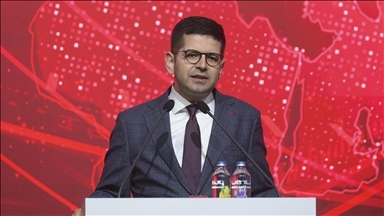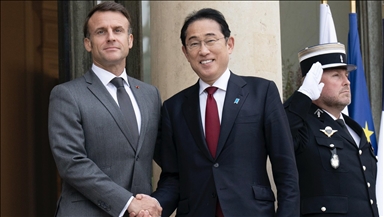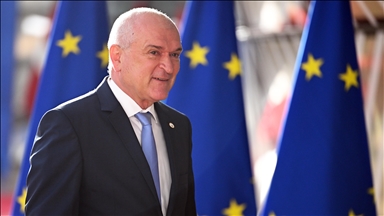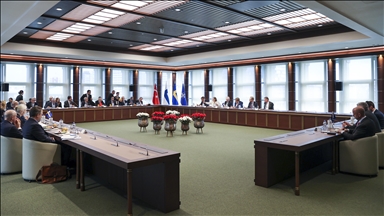NATO summit takes place in shadow of emerging Cold War
Alliance meeting takes place amid enormous polarization due to crisis in Ukraine but conditions deter NATO states from military conflict with Russia, experts tell AA
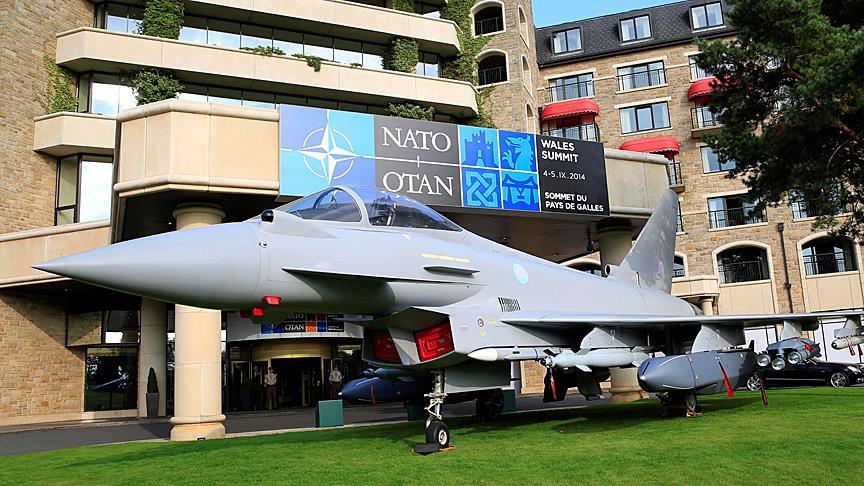
ANKARA
This week’s NATO summit in Wales is taking place against a backdrop of events in Ukraine which could see clear Cold War divisions re-emerge between Russia and the West, according to experts speaking to Anadolu Agency.
Policy specialists have suggested that although colder relations between the NATO camp and Russia are likely, open conflict seems the weakest possibility as the principle of ‘my enemy's enemy is my friend’ will dominate as the Islamic State militant group in Iraq and Syria remains a common concern for both NATO and Russia.
The top agenda of the summit, which started Thursday, is the crisis in Ukraine as
U.S. President Barack Obama and U.K. Prime Minister David Cameron penned an article together in The Times of London on Thursday to lay out the significance of this summit.
"We believe that NATO can adapt to meet the new challenges we face and that this summit can be a landmark in shaping this transition. The changes we need are clear. With Russia trying to force a sovereign state to abandon its right to democracy and determining the course of its future at the barrel of a gun, we should support Ukraine’s right to determine its own democratic future and continue our efforts to enhance Ukrainian capabilities," read the article.
"We must use our military to ensure a persistent presence in Eastern Europe, reassuring NATO members in Eastern Europe and making clear to Russia that we will always uphold our Article 5 commitments to collective self-defense," it also added, challenging Russia.
Terrorism specialist, Profesor Anatol Lieven from the Georgetown University in Qatar told AA: "We will see the threat of further sanctions against Russia. They've gone pretty far already. But there will not be any threat of using force."
Lieven said that the U.S. administration itself may think of arming the Ukrainians but backing them to win militarily will end up in "defeat and humiliation."
"Russia is never going to give up Crimea. And you cannot get them out there except [via] a military offensive," he added.
Relations between the West and Russia have hit a record low since the end of the Cold War. The Crimea annexation saw the EU and U.S. start economic warfare against Russia and began to stop all types of military relations with the country, including arms sales and troop exercises.
Professor Cagri Erhan from Ankara University’s Political Science Faculty said the formation of a new Cold War order is likely, given the horrendous possible results of a military conflict between the two sides.
The U.S. and Russia are among the five states recognized as possessing nuclear weapons, other than the U.K.,
The U.S., meanwhile, has some 4,804 nuclear warheads as of September 2013, including tactical, strategic and
"No one should forget that Russia has nuclear weapons and [would] never hesitate to use them in the face of a military threat," said Erhan.
However, the presence of the extremist Islamic State, formerly known as the Islamic State of the Iraq and Levant, would force the two sides to cooperate in the Middle East, according to Erhan.
"Due to the fact that on NATO's southern border, Iraq and Syria, is out of the operational frontiers of NATO, to seek a confirmation from the UN Security Council on a military operation will strengthen the hand of the organization legally," he said.
"Despite the severance of relations, Russia would consent to an authorization from the Council, because the IS is a common threat to the interests of Russia and the West in Syria and Iraq."
IS is fighting against both the Russian-backed Bashar al-Assad regime in Syria and the U.S.-backed armed opposition. The U.S. has conducted airstrikes on the areas controlled by IS in northern Iraq, helping the Kurdish regional administration in the north to protect its borders and to aid Ezidis and other
The NATO alliance has made several military operations outside of its borders with the support of the council, including in Afghanistan,
Meanwhile, "only systematic and inevitably slow efforts", which will be supported by political measures such as speeding up efforts to unify Iraq, will do in the fight against the IS, Lieven says.
"The U.S. obviously played a great role in getting rid of [the long-term Iraqi prime minister Nouri al-] Maliki, pushing in a different Shia leader who they hope will be more accommodating towards Sunnis. This appears to be having some success in winning some Sunni leaders to the Iraqi government side," he said.
Jorge Benitez, a senior fellow at the Washington-based Atlantic Council, also said that "military measures will be necessary to stop the momentum of military victories that the IS threat achieved recently and to decrease their ability to pose such a great threat again."
Anadolu Agency website contains only a portion of the news stories offered to subscribers in the AA News Broadcasting System (HAS), and in summarized form. Please contact us for subscription options.


